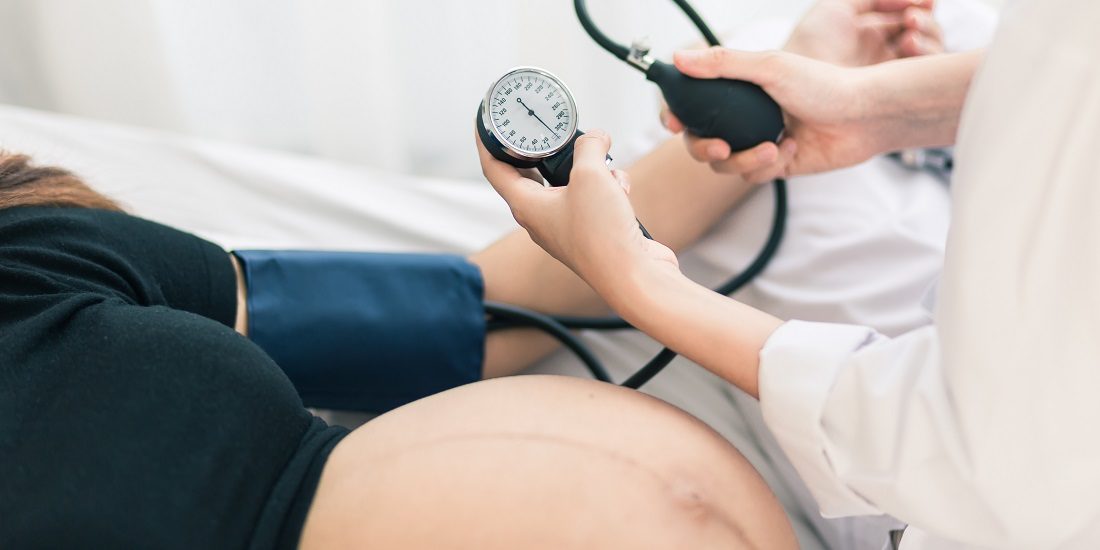Hypertensive disorders in pregnancy are a warning sign
Women who experience hypertensive disorders while pregnant are more susceptible to developing cardiovascular disease later in life. But the main reason doesn’t stem from the hypertensive disorder itself.
Hypertensive disorders of pregnancy (HDP) are associated with an increased risk of cardiovascular disease. But the connection is not a direct one.
Instead, it’s likely that the factors that increase the risk of cardiovascular disease also increase women’s risk of various complications during pregnancy.
“We already knew that women with a history of HDP were more prone to cardiovascular disease later in life. So we studied how risk factors for cardiovascular disease develop through the life course of women who had experienced HDP, and what role various well-known cardiovascular risk factors play in the development of cardiovascular disease in these women,” says Eirin Beate Haug, a postdoctoral fellow at NTNU’s Department of Public Health and Nursing.
Haug is the first author of a newly published article in JAMA Cardiology. This study examined the role of cardiovascular risk factors such as body mass index (BMI), blood pressure, and lipid and glucose levels in the development of cardiovascular disease in women who have had pre-eclampsia or elevated blood pressure during pregnancy.
- You may also like: Exposing bad science in medical research publishing

Women who have experienced HDP can get advice on lifestyle changes. Photo: Shutterstock, NTB Scanpix
Risk increases up to age 70
Data on 23 885 pregnant women were obtained from the Nord-Trøndelag Health Study in Norway (HUNT). Of these, 2199 had been exposed to HDP.
Women between the ages of 40 and 70 who have experienced pre-eclampsia or hypertension during pregnancy have an average 57 per cent higher risk of developing cardiovascular disease than those who haven’t. The researchers did not find a similar association for women over 70.
However, none of the HDP conditions is a major cause of the increased risk of cardiovascular disease. The explanation is much clearer.
“We found that most of the elevated risk can be explained by the common risk factors for cardiovascular disease, especially blood pressure and obesity,” says Associate Professor Julie Horn at NTNU’s Department of Public Health and Nursing.
- You may also like: What makes everyone sick?
Follow-up important
One lesson from the results is that follow-up of women who experience HDP should not stop as soon as the mother leaves the hospital and symptoms have passed, since the underlying reasons for the HDP have not been addressed.
“It can be frustrating simply to know that you’re at high risk without knowing how to prevent the disease,” said Horn, who hopes to implement a pilot project with the first participants during the fall.
Horn and several colleagues are planning a programme where women who have experienced HDP can get advice on lifestyle changes. These changes may reduce the risk of developing cardiovascular disease later in life and will include guidance on training and diet.
NTNU has collaborated on the research with St. Olavs hospital and Levanger hospital in Trøndelag county and international institutions such as Harvard University and the University of Bristol.
Source: Association of Conventional Cardiovascular Risk Factors with Cardiovascular Disease After Hypertensive Disorders or Pregnancy. Analysis of the Nord-Trøndelag Health Study. Eirin B. Haug, PhD; Julie Horn, MD, PhD; Amanda R. Markovitz, MPH, ScD; Abigail Fraser, MPH, PhD; Bjørnar Klykken, MD; Håvard Dalen, MD, PhD; Lars J. Vatten, MD, PhD; Pål R. Romundstad, PhD; Janet W. Rich-Edwards, MPH, ScD; Bjørn O. Åsvold, MD, PhD. doi: 10.1001 / jamacardio.2019.1746
https://jamanetwork.com/journals/jamacardiology/fullarticle/2735439


